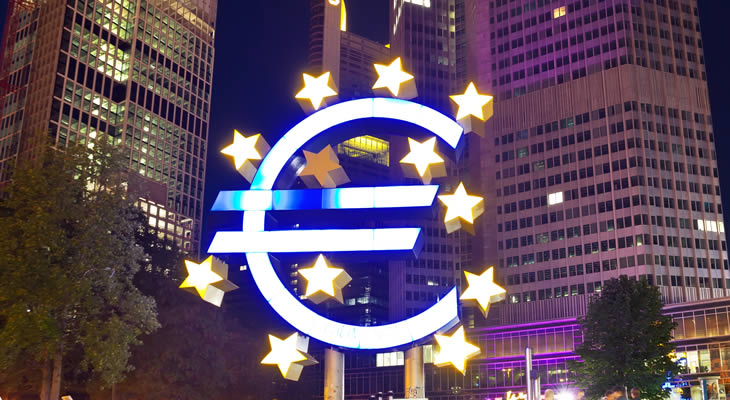As Friday’s session advanced, the Euro gave up some of its earlier gains against the Pound to trade in a steady range as market attention focused on Monday’s crunch meeting of European Finance Ministers. Investors are nervous that a deal may not be reached with Greece, which could lead to the nation going bust and exiting the Eurozone.
The Pound softened slightly after data showed that the UK Construction sector slowed down to make the first quarterly decline in output for the sector since the start of 2013, echoing other signs of waning activity in the housing market.
Earlier the Euro to Pound Sterling (EUR/GBP) exchange rate rallied to a session high of 0.743 after GDP data out of Germany and the wider Eurozone beat economist forecasts and raised hopes that the region is course to stage a solid recovery.
German GDP boosts Euro (EUR) Exchange Rate
GDP data out of Germany took the markets by surprise by showing that the Eurozone’s largest economy experienced more growth than forecast in the final quarter of 2014.
The Germany economy was shown to have expanded by 0.7%, a figure that was more than twice as strong as expected. The report suggests that strong domestic demand, exports and improving business investment were the main factors for the rise.
‘This is a thunderbolt. Economic recovery in Germany started much earlier than expected. Some spoke of possible recession after the summer but instead Germany rebounded. The fact that the growth comes mainly from the domestic economy gives strong grounds for optimism,’ said economist Andreas Rees.
Aiding Germany’s recovery will be cheaper oil, a weaker Euro exchange rate and the introduction of the European Central Banks large bond-buying programme.
Adding to the strength of the Euro was a separate report, which showed that the wider 19-member Eurozone economy expanded at a stronger pace than forecast. The data released by Eurostat showed the region’s GDP grew at a pace of 0.3%, a figure that beat economist expectations for a rise of 0.2%.
The report also showed that Holland’s economy grew by a stronger than expected 0.5% on a quarterly basis and Portugal also grew at 0.5%.
Despite the strong data France, Italy, Cyprus and Greece all disappointed. The Greek economy contracted by 0.2%, Cyprus contracted by 0.7%, Italy saw no change and France grew by just 0.1%.
Greece Optimism Adds to Euro Support
The Euro received further support after Greek Prime Minister Alexis Tsipras said that his government would make every effort to reach a deal with its Eurozone partners as next week’s crunch meeting of European Finance Ministers.
‘We will do whatever we can so that a deal is found on Monday. If we don’t have an agreement on Monday, we believe that there is always time so that there won’t be a problem,’ said a Greek government representative.
At a conference of European leaders held on Thursday night Mr Tsipras agreed to meet with representatives from the European Commission, the European Central Bank and the International Monetary Fund.
The single currency ios forecast to hold onto its gains at the start of next week as balance of trade data due next Monday is likely to come in positively.

